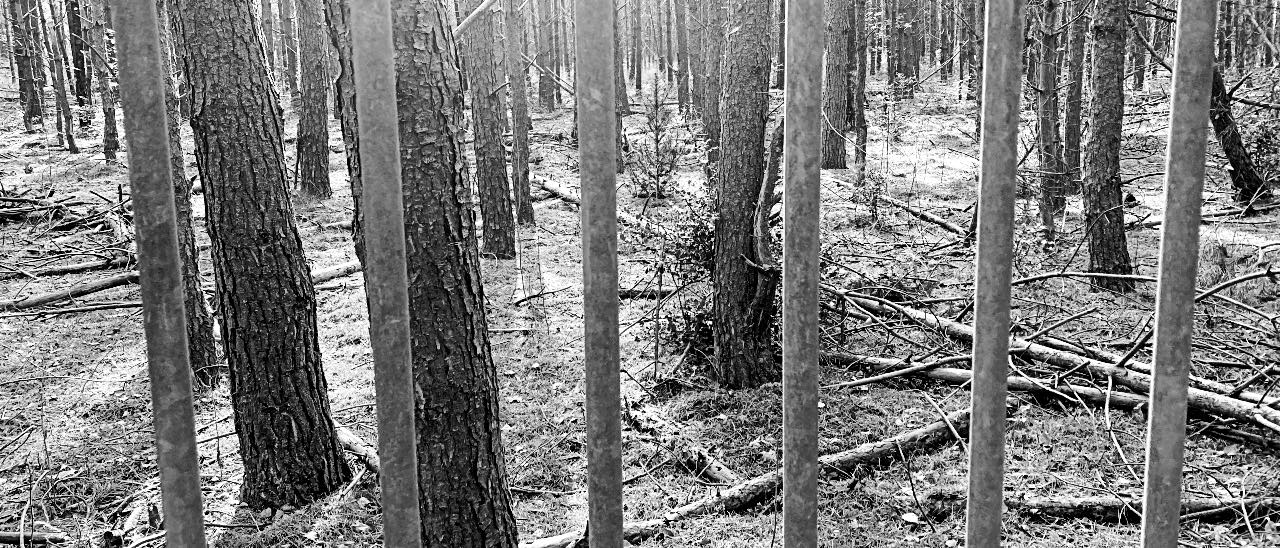In the winter of 1821, a boy named Isaac Tange was born in a coastal town on the North Sea, Vrouwenpolder, in the United Kingdom of The Netherlands. Ten years later, on June 17, 1831, government officials took him to the Ommerschans slave labor camp in the forested North-East, 163 miles away. What happened there, to Isaac and so many others, shows how undignified and disingenuous modern historiography is; how delusionally unexplored the systematic, international abuse of innocent civilians.
On that day in 1831, officials not only took Isaac but also his 11-year-old brother Arij Tange and their 56-year-old father, David Tange. Mother Maria, in her early forties, and four-year-old little Maria were left behind. Their fate remains unknown as no further trace of them has been found in archives by the two researchers cited below.
Once inside the camp, commonly described as a Beggars Colony, the boys and their father were numbers 748, 731 and 729. An official described Isaac as 5 ft. 1 (157 cm) in height, with an oval face, pale skin with pockmarks, brown eyes and brown hair, a round chin and a small, chubby nose. After four months, the three were transferred to another camp, Veenhuizen, forty miles further north. Here, less than three weeks later, father David dies.
One year after their father’s death, in November 1832, the boys are transferred to one of the Orphan areas within the same camp. Isaac (11) becomes number 840 and Arij (12) number 550. On February 11, 1833, Arij escapes from the camp and never returns. He later becomes a sailor and marries.
In May, Isaac also tries to escape. Seventeen miles west he gets caught and is brought back to the camp. Officials correspond among themselves that he had said he was “trying to go home to his mother.” A judicial committee fines him and locks him in solitary confinement for four days, every other day he goes without food and water. Another 4.5 years the boy remains imprisoned, until his release on October 22, 1837. Like his brother, he starts to work as a sailor. Four years later, Isaac dies at sea at age 20.
Isaac was one of the many victims of the endeavor named De Maatschappij van Weldadigheid (The Well-Doing Company), founded in 1818 under the guise of helping and civilizing poor children. Dutch King William I (reign 1815-1840) was the president. National and local politicians, as well as hired camp staff, carried out many of the operations, and Johannes van den Bosch (1780-1844) was the executive manager. It was dismantled around 1900.
These Dutch camps are indistinguishable from those in the United States, where between 1850-1920 a similar organization existed, also led by the most wealthy and powerful, in which hundreds of thousands of children were transported across the country on what is known as the Orphan Trains. Like Isaac, many of these children were not orphans and many were kept in slave labor camps.
Within the walls of the Ommerschans camp, on July 15 1823, two well-known aristocratic young men, Jacob van Lennep (1802-1868) and Dirk van Hogendorp (1797-1845), witnessed the circumstances of hunger, sickness and grave injustice. The afternoon hours they spent inside the camp, they wrote, were among the most painful of their lives.
Deze uren heb ik zeker onder de pijnlijkste die ik immer heb doorgebracht.
Dirk van Hogendorp
Today, the only remnant of Isaac’s camp is its cemetery where thousands of men, women and children lay buried in graves, most of them unmarked, some of them marked with their camp numbers and none of them marked with their names.
(1) Schackman, Wil. De kinderkolonie. Tot een werkzaam leven opgeleid: de wezen van Veenhuizen (1824-1859), Atlas Contact, Amsterdam, 2016.
(2) Schackman, Wil. De Jongens Tange. Assisted by family researcher Adrie Tange.
(3) Lennep, J. van. Nederland in den goeden ouden tijd. Zijnde het dagboek van hunne reis te voet, per trekschuit en per diligence van Jacob van Lennep en zijn vriend Dirk van Hogendorp door de Noord-Nederlandsche provintiën in den jare 1823. Utrecht, 1942.
(4) Canon van Nederland Online.

Im glad I found the substack Laura. Mr email address would no longer work.
Thank you so much for the ongoing articles. Mans inhumanity to man.
Breaks my heart
Mary
New Zealand
Thank you dear Mary. Means a lot. Much love to you